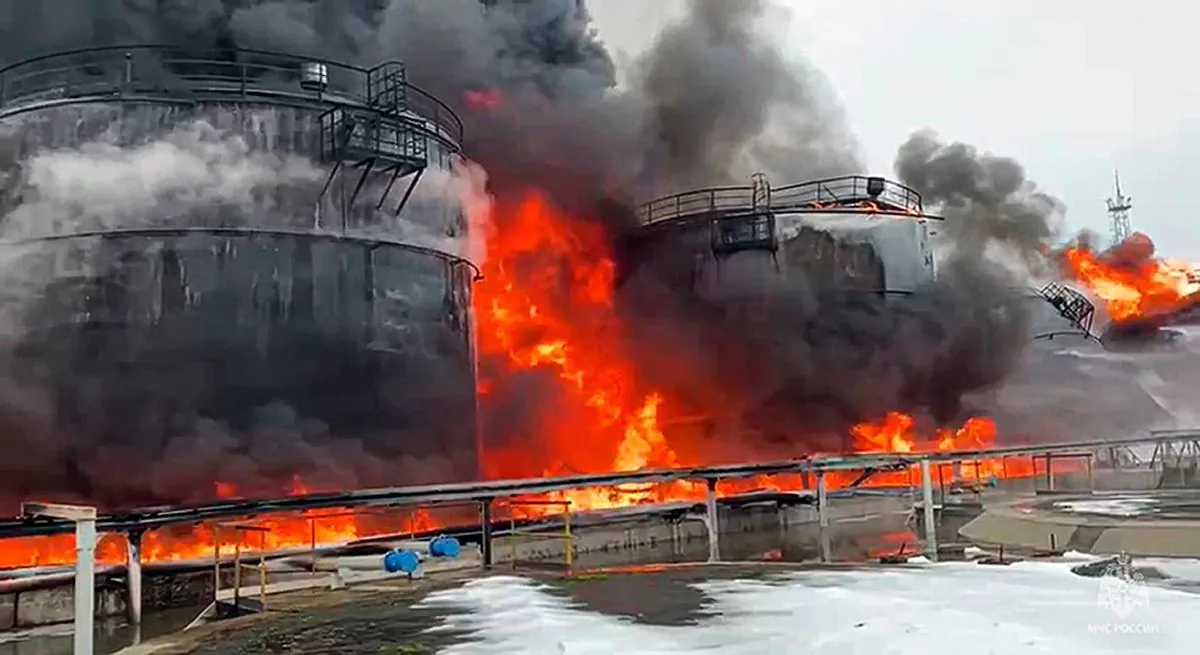On August 28, 2024, Ukraine's military reported a series of strategic strikes against Russian targets, including an artillery depot and two oil storage facilities. These attacks, occurring deep within Russian territory, demonstrate Ukraine's expanding capabilities in long-range warfare.
The Ukrainian forces targeted the Atlas oil depot in the Rostov region, which borders Ukraine. Additionally, they struck the Zenit oil facility in the Kirov region, located approximately 1,500 kilometers northeast of the Ukrainian border. A field artillery depot in the Voronezh region was also reportedly hit.
Russian authorities acknowledged some of these incidents but provided differing accounts of their impact. The attack on the Rostov oil depot was confirmed to have caused a fire, while Alexander Sokolov, governor of the Kirov region, stated that the drone attack on the oil products depot in Kotelnich did not result in a blaze or casualties. In Voronezh, Governor Alexander Gusev reported that debris from a Ukrainian drone caused a fire near explosive objects, but no detonations occurred.
These strikes align with Ukraine's stated strategy of targeting energy, transport, and military infrastructure crucial to Moscow's war effort. The focus on oil facilities is particularly significant, given Russia's position as one of the world's largest oil exporters.
"Our operations aim to disrupt the enemy's logistical capabilities and hinder their ability to sustain aggressive actions against our nation."
The use of drones in these attacks highlights the evolving nature of modern warfare. Ukraine has been rapidly developing its drone capabilities in recent years, allowing for precision strikes deep within enemy territory. This technological advancement has introduced new challenges in international law and ethics regarding armed conflicts.
It's important to note that both sides in this conflict, which has been ongoing for over 30 months since Russia's full-scale invasion in February 2022, deny targeting civilians. This stance aligns with international humanitarian law, which prohibits deliberate attacks on non-combatants.
The conflict continues to have significant economic impacts on both countries and global markets. As the war approaches its third year, the international community remains concerned about its prolonged nature and the potential for further escalation.
